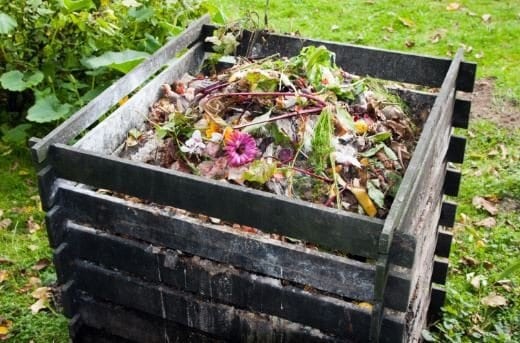An organic material that your plants will simply love, compost gives your plants vital nutrients and minerals that allow them to grow and thrive. If you are an avid green thumb and you want to enrich your plants or you simply want to know about compost for a school science project, read on to find out four benefits of compost.
Boosts your soil health and makes your plants happy
Whether you are trying your hand at growing your own vegetable patch or you want to have bright blooms all year round, compost is a great way to make this happen. Consisting of decaying matter like leaves, twigs and food waste, compost contains all of the organic nutrients, vitamins and minerals, making it a great fertiliser and food to add to plants.
Reduces need for chemical fertilisers
Chemical fertilisers provide quick results and are easy to find and relatively affordable, understandably many avid and first-time gardeners buy them to enhance their plants. However, chemical fertilisers can actually cause more harm than good to your local environment. Not only are they artificially produced, but if they are persistently used, they can damage your soil in the long run as they contain high levels of acid. What’s more, these chemicals can then leak into the water in the soil which means that local wildlife can also be damaged as a result. It is no secret that we need to protect our local ecosystems as well as the planet as a whole.
Can be easily and cheaply made
If you have a love for cooking from fresh and healthy ingredients, compost is a great way to use up the food waste you produce. Simply store vegetable ends, ground coffee, tea bags, fruit peels and unwanted leftovers in your brown bin or separate caddy, then add to a composter with dry materials like old leaves, twigs, and sawdust pellets. Over time these will create humus which is a nutrient-rich and ready to add to your plants. The secret to healthy compost is getting the right mixture of carbon and nitrogen, with one-third nitrogen-rich ingredients like manures, food scraps and green leaves, to two-thirds carbon-rich ingredients like branches, coffee filters, eggshells, peat moss or saw dust.
Reduces waste going to landfill
A great benefit that making your own compost provides is that it reduces the amount of unnecessary food waste ending up in landfill. A misconception surrounding food waste is that is not harmful if it ends up in landfill because it biodegrades. However, this is not the case. When food waste ends up in landfill it not only biodegrades slower, as it doesn’t have the right chemical balance of carbon and nitrogen, but it also releases harmful toxic greenhouse gas emissions into the atmosphere like methane. What’s more, it is no secret that landfill space is few and far between, so we need to do more to reduce the amount of waste heading there.
Here at Devon Contract Waste, we are determined to fight the amount of waste needlessly ending up in landfill, which is why we are a zero to landfill company. To find out more about our services, simply contact us today.
